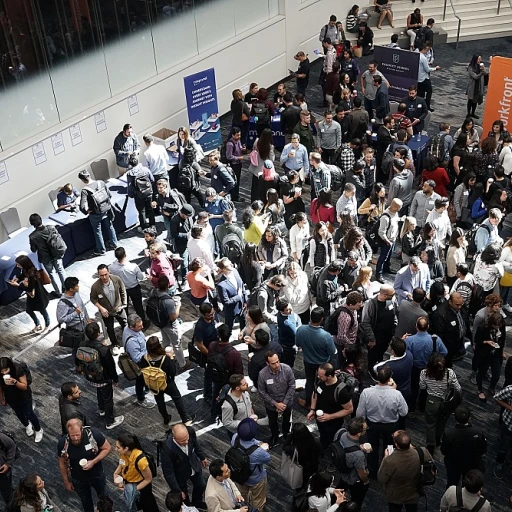
Understanding Generative AI in Workforce Training
Leveraging AI for Workforce Learning
The concept of generative AI in workforce training has gained considerable traction, especially among startups seeking innovative solutions. Generative AI offers a dynamic approach to creating adaptable training tools that cater to the evolving needs of both employees and companies. At its core, this technology employs machine learning algorithms to generate content, data, and scenarios that facilitate comprehensive learning experiences.
Generative AI democratizes skills training by making high-quality programs accessible and personalized. It functions by analyzing vast amounts of data to identify patterns and skills required in specific industries, enabling training providers to create tailored corporate training programs. This approach enhances workforce development by offering courses that resonate with the learners' capabilities and career aspirations.
AI-Driven Learning Solutions
Companies adopting generative AI tools benefit from accelerated employee engagement as these solutions empower workforces to adapt swiftly to market changes. Training employees is no longer a static process; it's an evolving journey spurred by continuous feedback and updates, which AI can provide in real-time.
Moreover, the intricacy of generative training solutions allows businesses to anticipate future educational needs and adjust their programs accordingly. This future-forward approach ensures businesses remain competitive while fostering a culture of continuous learning and development.
The Role of Generative AI in Remote Work Environments
Impact of Generative AI on Learning and Development
Generative AI is not just a futuristic concept; it is shaping the present of remote work environments. By automating parts of the learning process, companies can enhance their workforce capabilities more efficiently. This technology allows for the creation of customizable training programs that suit the unique needs of businesses and their employees.Enhancing Skills Training Remotely
In remote work settings, maintaining employee engagement through effective skills training is critical. Generative AI tools can identify skill gaps by analyzing data and tailor courses to address these gaps. By doing this, businesses ensure that their employees' skill development aligns with company objectives.Automation and Reduced Training Time
Generative solutions offer innovation in workforce development by automating content creation, thus reducing the time needed for training employees. It provides scalable solutions that can adapt to different learning styles, ensuring that all employees, regardless of location, benefit from the training programs.Facilitating Continuous Learning
This technology supports a culture of continuous learning, crucial for future work landscapes. Employees can access generative skills training courses anytime, promoting lifelong learning and career navigation. As training providers recognize this, they are designing programs that integrate these AI tools effectively.Data-Driven Insights for Training Programs
Generative AI utilizes machine learning to analyze vast amounts of data to provide actionable insights. These insights help tailor corporate training programs that are more effective and relevant to the current business challenges and employee needs. For those navigating remote work landscapes, tools like Set Works provide essential guidance and support, further enhancing the potential of generative AI solutions in transforming workforce training.Benefits of Generative AI for Startups
Exploring the Advantages of Generative AI for Startups
The rise of generative AI has been a game-changer for startups, offering a spectrum of benefits that can enhance workforce development and business growth. One of the remarkable advantages is in the realm of skills training, where generative tools can create tailored training programs that cater to the specific needs of individual employees, enabling them to upskill efficiently.
Startups often operate within tight budgets and time constraints, making generative AI an attractive solution due to its ability to significantly reduce training costs. By automating content creation for skills development courses, these companies can focus their resources on innovation and other key business areas.
Moreover, generative AI equips businesses with improved learning dynamics that foster a culture of continuous improvement. Employees can benefit from dynamic training programs that adapt to real-time performance data and adjust learning pathways accordingly. This personalized approach not only enhances employee engagement but also contributes to retaining top talent in a competitive market.
In remote work environments, the role of generative AI is further amplified by its ability to facilitate training solutions that bridge physical distances. By supporting asynchronous learning and offering on-demand content, generative AI helps remote employees access necessary training materials anytime, fostering a well-equipped workforce regardless of location. For more insights into the security measures essential for remote work environments, visit our article on the importance of HIPAA-compliant messaging.
The influence of generative AI extends beyond training, impacting areas such as career navigation and future work prospects. By analyzing data on employee progress and skill gaps, businesses can better align development targets with strategic goals, preparing employees for future roles and opportunities.
While the advantages are evident, startups should consider potential challenges when integrating AI-driven tools. Adopting generative AI should be strategic, keeping in mind its implications on workforce dynamics and data management practices.
Challenges and Considerations
Challenges to Implementing Generative AI in Workforce Training
Integrating generative AI into workforce training presents unique challenges, particularly for startups aiming to leverage this technology for development and learning. Understanding these barriers is crucial to providing effective training solutions and enhancing employee engagement.- Data Requirements: Generative AI relies heavily on large datasets to function optimally. Startups may struggle to access or generate the necessary data to fuel AI-driven learning training and skills development programs. Ensuring data quality and privacy is paramount to align with workforce development goals.
- Infrastructure Needs: Establishing a robust technical infrastructure to support machine learning and artificial intelligence tools can be complex and resource-intensive. Companies must evaluate their existing capabilities and readiness to invest in necessary systems and tools for generative training.
- Cost Considerations: While generative tools promise innovation, the initial cost of implementation can be a significant hurdle. Training programs and tools need strategic budget allocations to avoid diverting resources from other critical areas of business development.
- Skills Gap: Implementing generative AI effectively requires a skilled workforce familiar with these technologies. Training providers and companies must facilitate skills training and development initiatives to empower employees with generative skills critical for their career navigation in the future work landscape.
- Integration with Existing Systems: Generative AI solutions should seamlessly integrate with existing corporate training systems and courses to maximize benefits. The process requires careful planning and coordination to minimize disruptions to ongoing training programs.
- Employee Acceptance: Achieving workforce buy-in is vital. Employees need to see the value in new training solutions to participate actively and engage with learning materials. Companies should communicate the benefits effectively and involve employees in the development of training strategies to promote a positive perception.
Case Studies: Successful Implementations
Illustrative Examples of Generative AI in Workforce Training
As the workforce landscape continues to evolve, innovative organizations are harnessing generative AI to transform the way they approach skills training and employee development. By examining successful implementations, we can glean valuable insights into the potential these tools hold for reshaping corporate training programs.
One notable example comes from a technology company that integrated generative AI into their workforce development initiatives. By utilizing advanced generative tools, they created customizable training modules tailored to the unique roles and responsibilities of employees. This allowed for personalized learning pathways, ultimately fostering skill acquisition that aligned with both business needs and individual career goals. By leveraging AI-driven training solutions, the company enhanced employee engagement and reduced the time required to develop new competencies.
Another case involves a startup in the retail sector that faced the challenge of keeping pace with rapid market changes. In response, the company implemented generative training tools to expedite the onboarding process and provide ongoing learning opportunities for its workforce. These AI-driven programs enabled employees to seamlessly update their skills in real-time, ensuring that the team remained agile and adaptable to shifting market demands.
Furthermore, a financial services firm successfully employed AI-generated data models to enrich their corporate training offerings. By analyzing performance data, they were able to generate insights that informed more effective training strategies and tailored employee interventions. This data-driven approach not only supported skills training but also facilitated continuous learning and improvement across the organization.
These instances demonstrate the tangible benefits of integrating generative AI into workforce training strategies. By addressing the intricacies of skills development and employee learning, companies can stay ahead in a competitive business environment and equip their workforce for the future of work.
Future Trends in Generative AI for Workforce Training
Embracing the Next Wave of Generative AI Innovations
The future of generative AI in workforce training is brimming with potential as companies and businesses recognize its transformative power. With an astonishing capacity for innovation, generative tools continue to enhance training programs, enabling better skill acquisition and employee engagement. As we look ahead, several promising trends emerge:- Advanced Machine Learning: The integration of machine learning in generative training solutions will further personalize the learning experience for employees. Tailored courses adapting to real-time data will ensure that workforce development aligns closely with individual needs and business goals.
- Interactive Learning Solutions: Immersive training programs will become more prevalent, offering employees hands-on experience through interactive simulations. This approach helps individuals hone their skills in a safe environment, bolstering confidence and proficiency.
- Growth of AI-Driven Training Providers: Training companies are increasingly relying on AI to develop and deliver innovative courses that meet the ever-evolving demands of various industries. These programs will cater to diverse learning styles and promote continuous growth.
- Shift towards Data-Driven Insights: AI-powered analytics will become a cornerstone of workforce training, allowing businesses to assess the effectiveness of their programs. Leveraging data science, companies can refine their strategies, maximizing the impact of their training initiatives.
- Enhancing Career Navigation: Systems utilizing AI for career navigation will guide employees through their career development journeys. By identifying strengths and areas for improvement, these solutions can provide personalized career paths, encouraging lifelong learning and professional growth.













